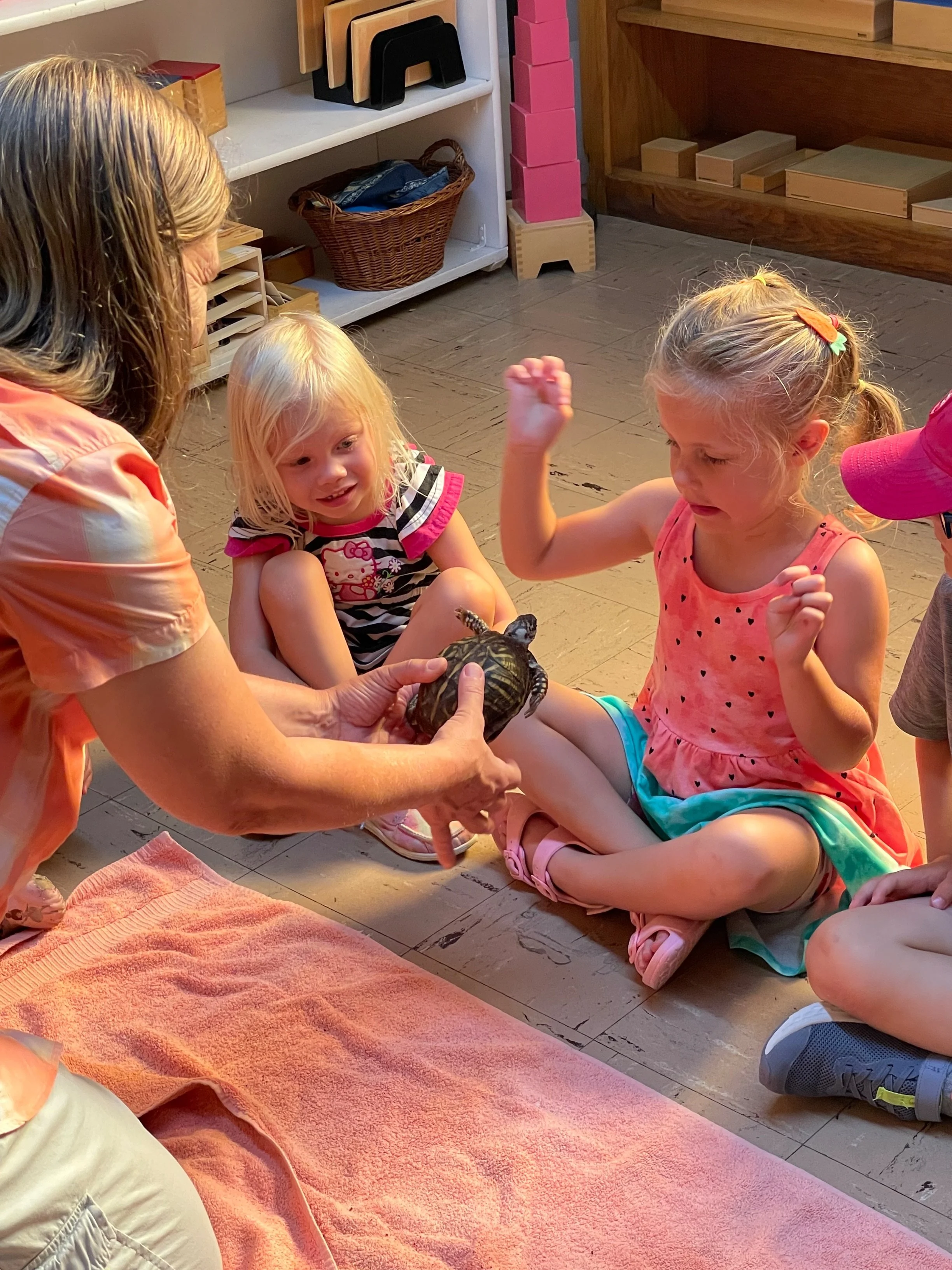What is Montessori?
The Montessori method, developed by Dr. Maria Montessori in the early 20th century, is one of the few educational approaches grounded in scientific observation of children. A physician by training, Dr. Montessori studied how children learn and develop, discovering principles that modern neuroscience continues to affirm more than a century later.
“We recognize the inherent worth and uniqueness of every child and cultivate an environment for the development of their fullest potential.” – MSP Mission Statement
In a Montessori classroom, children work independently and at their own pace, often using hands-on materials, under the careful observation of specially trained guides. Multi-age classrooms allow younger children to learn from older peers and give older students the opportunity to serve as role models. At the heart of this environment is self-discovery—children develop independence, concentration, problem-solving skills, and the ability to follow complex instructions.
Long, uninterrupted work periods foster a state of deep focus, while the prepared environment meets children’s developmental needs. The result? Social and emotional fulfillment paired with academic challenge, and a lifelong love of learning rooted in the process rather than the product.
“Patterns of concentration and thoroughness established in early childhood produce a confident, competent learner in later years.”
This paper explores research on Montessori education - a true evidence-based curriculum.
Montessori in the 21st Century
The Partnership for 21st Century Skills identifies four core skills for success: Critical Thinking, Communication, Collaboration, and Creativity. Montessori education nurtures all four every day.
Critical Thinking – Interdisciplinary studies and hands-on materials help children develop strong executive functioning skills. They learn to question, experiment, and solve problems with curiosity and persistence.
Communication – Through Grace & Courtesy lessons, children learn to express themselves clearly and respectfully, listen to others, and build empathy.
Collaboration – In multi-age classrooms, students work together, teach each other, and tackle projects as a team—skills essential for the modern workplace.
Creativity – Montessori students think creatively across disciplines, not just in the arts. They are encouraged to embrace mistakes, think “outside the box,” and explore unconventional solutions—qualities that make them eager, confident learners.
“Children move themselves toward learning. The guide prepares the environment, offers stimulation, and directs the activity—but it is the child who learns.”
The Goal
“The goal of a Montessori education is for the child to develop a love of learning that will carry them throughout life, and to become a thoughtful, concerned, successful, well-rounded, and happy citizen of the world.”
Learn More about montessori
If you’d like to dive deeper into what makes Montessori so effective, here are some recent articles and studies worth exploring:
What the Research Says – A 2023 meta-analysis shows Montessori education benefits children’s cognitive, creative, social, and academic growth.
Read the summary »A Rigorous Public School Study – One of the largest studies of its kind, using randomized lotteries to measure academic and social-emotional outcomes in public Montessori preschools.
See the study »Montessori & Self-Regulated Learning – 2025 research on how the Montessori environment fosters independence and intrinsic motivation.
Read the article »Montessori and Adult Well-Being – A study showing that adults who attended Montessori schools often report greater happiness and life satisfaction.
Explore the findings »The Health Benefits of Montessori – A 2025 Forbes article outlining the emotional stability, confidence, and cognitive gains linked to Montessori learning.
Read the article »

